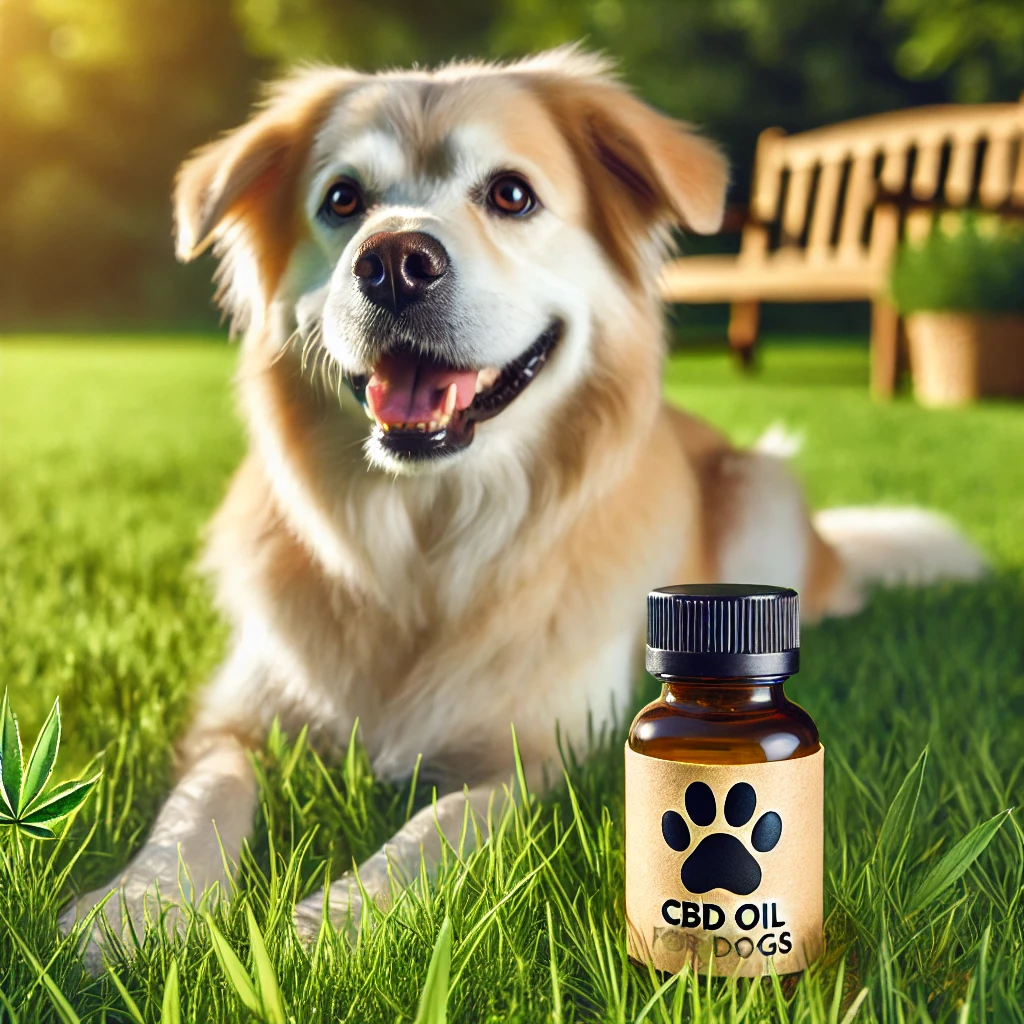As CBD (cannabidiol) continues to rise in popularity, its benefits are being explored not only for humans but for pets as well, particularly dogs. Pet owners are increasingly turning to CBD as a natural supplement to help their furry friends with various health issues. From anxiety to joint pain, CBD has shown potential benefits. In this article, we’ll delve into the topic of CBD for dogs, covering its uses, benefits, potential risks, and how to incorporate it into your dog’s wellness routine.
What is CBD, and How Does it Work for Dogs?
CBD, or cannabidiol, is a natural compound found in cannabis plants. Unlike THC (tetrahydrocannabinol), another compound in cannabis, CBD does not cause psychoactive effects. In simple terms, it won’t make your dog feel “high.” Instead, it interacts with the endocannabinoid system (ECS), which is present in both humans and animals.
The ECS is responsible for regulating several functions in the body, including mood, pain sensation, immune response, and appetite. When CBD interacts with the ECS, it can help restore balance, potentially offering therapeutic benefits.
Benefits of CBD for Dogs:
-
Anxiety and Stress Relief:
Many dogs experience anxiety due to loud noises, separation from their owners, or other environmental factors. CBD has been shown to have calming effects, making it an ideal option for dogs dealing with stress or anxiety. If your dog is prone to barking excessively, pacing, or showing signs of distress, CBD may help reduce these symptoms.
-
Pain and Inflammation:
For dogs suffering from chronic pain, especially due to arthritis or other inflammatory conditions, CBD may provide relief. Research suggests that CBD has anti-inflammatory properties, making it a good option for dogs with joint pain or mobility issues. Just like Power CBD Gummies work to alleviate discomfort in humans, CBD oils and treats for dogs can offer similar benefits.
-
Improved Appetite and Digestive Health:
Some dogs may struggle with digestive issues, leading to poor appetite or gastrointestinal distress. CBD may help stimulate appetite and ease digestive problems, providing relief to dogs with food sensitivities or digestive disorders.
-
Epilepsy and Seizures:
Epilepsy is relatively common in dogs, and seizures can be challenging to manage. CBD has shown promise in reducing the frequency and severity of seizures in both humans and animals. While more studies are needed, many pet owners have reported positive results when using CBD for dogs with epilepsy.
How to Choose the Right CBD Product for Your Dog:
When selecting CBD products for your dog, it’s essential to consider several factors:
-
Quality of CBD:
Not all CBD products are created equal. Look for organic, full-spectrum CBD products specifically formulated for pets. These products are usually free from harmful chemicals or additives.
-
Dosage and Administration:
CBD products for dogs come in various forms, including oils, treats, and capsules. Always start with a low dose and consult with your veterinarian to ensure the dosage is appropriate for your dog’s size and condition.
-
Third-Party Testing:
Ensure that the CBD product you choose has been third-party tested for quality and purity. This guarantees that you’re giving your dog a product that is safe and free from contaminants.
-
Type of CBD:
Full-spectrum CBD is often recommended because it contains other beneficial cannabinoids and compounds that enhance the effects of CBD. However, if you’re concerned about any trace amounts of THC, consider broad-spectrum or isolate CBD products, which are THC-free.
How to Administer CBD to Dogs:
There are multiple ways to administer CBD to dogs, and the method you choose will depend on your dog’s preferences.
-
CBD Oil:
CBD oil is perhaps the most versatile option. It can be mixed with your dog’s food or given directly by mouth. Make sure to measure the dose correctly and monitor your dog’s reaction over time.
-
CBD Treats:
CBD-infused dog treats are a great option for pet owners looking for convenience. These treats are pre-dosed, so you won’t have to worry about measuring out the oil yourself.
-
Topical CBD:
If your dog has localized pain or skin issues, a CBD topical balm may be a good choice. These products are applied directly to the affected area to provide targeted relief.
Potential Risks and Side Effects:
While CBD is generally considered safe for dogs, there are a few potential side effects to be aware of:
-
Drowsiness:
High doses of CBD can cause drowsiness in some dogs.
-
Dry Mouth:
CBD may reduce saliva production, leading to increased thirst.
-
Lowered Blood Pressure:
CBD can cause a temporary drop in blood pressure, which may result in lightheadedness.
Always consult with a veterinarian before introducing CBD into your dog’s routine, especially if your dog is on other medications or has underlying health conditions.
Power CBD Gummies:
For pet owners who are familiar with CBD products for themselves, it’s worth noting that Power CBD Gummies offer similar benefits for humans. These gummies are popular for managing stress, promoting better sleep, and reducing pain. While the formulation for pets is different, the underlying principle of CBD’s therapeutic potential remains consistent. You can check out more information on Power CBD Gummies to explore its broader applications.
FAQs:
1. Is CBD safe for dogs?
Yes, CBD is generally safe for dogs when administered in the correct dosage. However, it’s essential to consult with your veterinarian before starting your dog on CBD, especially if they have pre-existing health conditions.
2. How much CBD should I give my dog?
The appropriate dosage depends on your dog’s size, weight, and health condition. It’s best to start with a low dose and gradually increase it, monitoring your dog’s response. Always follow the dosage instructions provided by the manufacturer and consult your vet.
3. Can CBD make my dog high?
No, CBD will not make your dog high. Unlike THC, CBD does not have psychoactive properties. Instead, it promotes balance in the body and may help alleviate symptoms of anxiety, pain, and other conditions.
4. How long does it take for CBD to work on dogs?
The time it takes for CBD to work depends on the delivery method and the dog’s condition. CBD oil can start working within 30 minutes, while CBD treats may take longer due to digestion.
5. Are there any risks of giving my dog CBD every day?
Daily administration of CBD is typically safe, but it’s always best to monitor your dog for any adverse reactions. Stick to the recommended dose and consult your vet regularly.
Conclusion:
CBD for dogs offers numerous potential benefits, from easing anxiety to alleviating chronic pain. With the right product and dosage, CBD can be a valuable addition to your dog’s wellness routine. Just like Power CBD Gummies work for human health, the pet-safe formulations provide a natural alternative to traditional medications for dogs. Always consult your veterinarian and choose high-quality products to ensure your furry friend’s health and safety.



